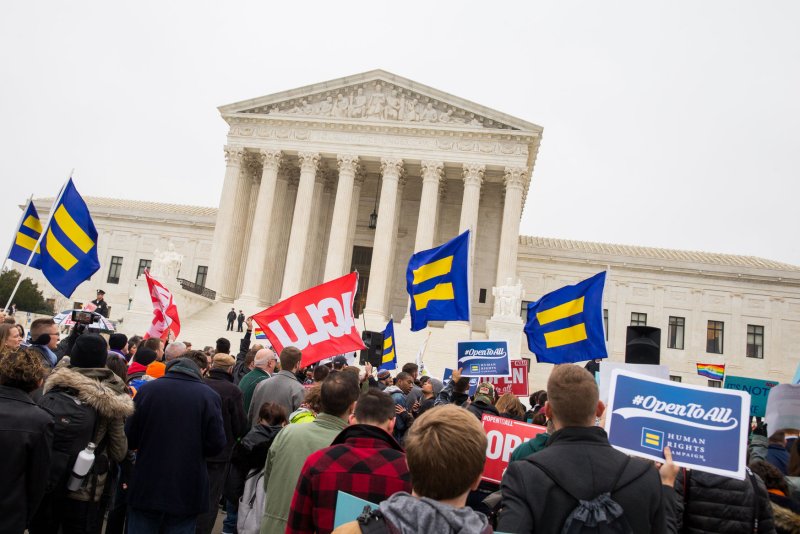April 22 (UPI) -- The U.S. Supreme Court said Monday it will decide whether existing civil rights law bans discrimination in the workplace based on sexual orientation.
Federal law prohibits workplace discrimination based on race, color, religion, gender or national origin but does not explicitly cover sexual orientation or gender identification. The court's decision to hear the case comes amid a national movement pushing for a ban on such discrimination.















